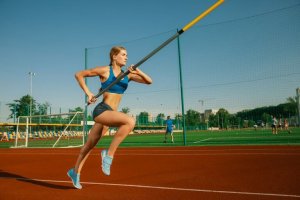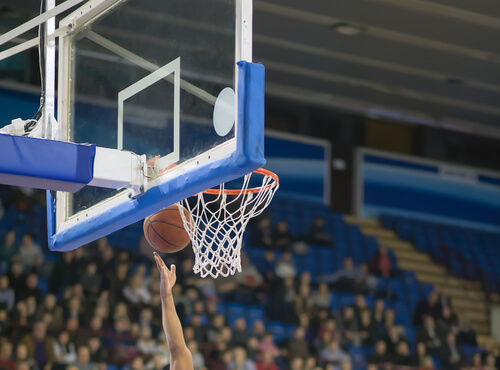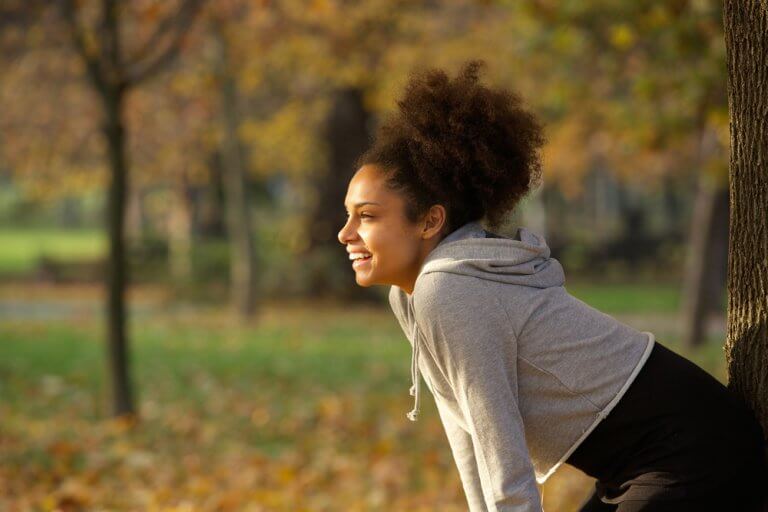What is the Employment Relationship for Athletes?

Both in legal aspects and in daily practical matters, the employment relationship for athletes is very particular. Therefore, there must be specific regulations to express the terms and guidelines needed to practice a certain sport as a profession.
In the following paragraphs, we’ll take a closer look at the legal regulations of employment relationships for professional athletes. We’ll also review the labor rights and obligations that athletes assume when practicing their sport professionally.
Legal aspects of the employment relationships of athletes in Spain
Just as it does with all other workers, the Statute of Workers in Spain also covers professional athletes. They appear among the category of the special employment relationship. However, we won’t find the specific guidelines that regulate the practice of a sport as a job in the Statue.
As a matter of fact, the ‘special employment relationship’ category encompasses a wide range of professional activities; from the artists in public shows, to the tasks carried out by those who are serving sentences in national jails.
To find the specific terms of the employment relationships for athletes, we must resort to Royal Decree 1006/1986 of June 26. There we can find the determinations that guide the professional practice of Spanish athletes.
However, the Secretary of State for Immigration and Emigration also weighed in on the situation. It published the Resolution of August 12, 2005, and complemented the text of the original Royal Decree. It details the conditions for residence authorization and the development of sports activities by foreign citizens in Spain.

Whose included in the employment relationship for athletes according to Spanish law?
The aforementioned Royal Decree 1006/1985 explains that its determinations are valid only for workers recognized as professional athletes in Spain. In its own text, it offers a definition by self-limiting its scope and field of action to those people who:
“[…] By virtue of a relationship established on a regular basis, dedicate themselves voluntarily to the practice of sport on their own behalf and within the scope of organization and management of a sports club or entity in exchange for remuneration.”
It also foresees that the regulation applies to labor contracts celebrated between professional athletes and companies or commercial firms for the development of activities in the sports field. The same applies to the contracts established between these athletes and companies dedicated to the organization and promotion of shows and events.
On the other hand, the Royal Decree makes it clear that the special employment relationship for athletes doesn’t extend to those who practice sports activities in the field of clubs; nor to those who receive only financial compensation for the expenses involved in their practice.
How are the labor rights and obligations of Spanish professional athletes determined?
In Spain, professional athletes have the same basic rights as all workers. You can find them in the Workers Statute we mentioned before. Some of the inalienable athlete rights that stand out are:
- Right to an effective occupation. An athlete cannot be excluded or discriminated in training, practices, and competitions that are essential for the development of their work activity. The exception is when they have injuries and sanctions that prevent them from performing professionally.
- Right to free speech in their work. Athletes must have the freedom to express their opinions and act in their professional fields. Of course, this applies as long as they respect Spanish law, the rules of the game, and the contract they’ve entered into with their employers or in collective labor agreements.

Obligations in the employment relationship for athletes
The same logic applies to the implicit duties for the professional practice of sport in Spain. First of all, they must comply with the guidelines established in the Workers’ Statute.
More specifically, athletes need to stay within the limits and conditions determined by the rules of the game that apply to their sports discipline. They must also respect the general rules of sports.
Those athletes who commit violations of the game rules during sports practice, or don’t comply with the basic rules of the sport, become subject to an administrative disciplinary-sanction process. The organizations with administrative power in their sport will be in charge of carrying it out.
Finally, if the infraction or non-compliance is confirmed, both the athlete and the contracting institution or club must comply with the sanctions applicable to their specific case. This happens according to the guidelines and regulations that apply in their sports discipline.
Both in legal aspects and in daily practical matters, the employment relationship for athletes is very particular. Therefore, there must be specific regulations to express the terms and guidelines needed to practice a certain sport as a profession.
In the following paragraphs, we’ll take a closer look at the legal regulations of employment relationships for professional athletes. We’ll also review the labor rights and obligations that athletes assume when practicing their sport professionally.
Legal aspects of the employment relationships of athletes in Spain
Just as it does with all other workers, the Statute of Workers in Spain also covers professional athletes. They appear among the category of the special employment relationship. However, we won’t find the specific guidelines that regulate the practice of a sport as a job in the Statue.
As a matter of fact, the ‘special employment relationship’ category encompasses a wide range of professional activities; from the artists in public shows, to the tasks carried out by those who are serving sentences in national jails.
To find the specific terms of the employment relationships for athletes, we must resort to Royal Decree 1006/1986 of June 26. There we can find the determinations that guide the professional practice of Spanish athletes.
However, the Secretary of State for Immigration and Emigration also weighed in on the situation. It published the Resolution of August 12, 2005, and complemented the text of the original Royal Decree. It details the conditions for residence authorization and the development of sports activities by foreign citizens in Spain.

Whose included in the employment relationship for athletes according to Spanish law?
The aforementioned Royal Decree 1006/1985 explains that its determinations are valid only for workers recognized as professional athletes in Spain. In its own text, it offers a definition by self-limiting its scope and field of action to those people who:
“[…] By virtue of a relationship established on a regular basis, dedicate themselves voluntarily to the practice of sport on their own behalf and within the scope of organization and management of a sports club or entity in exchange for remuneration.”
It also foresees that the regulation applies to labor contracts celebrated between professional athletes and companies or commercial firms for the development of activities in the sports field. The same applies to the contracts established between these athletes and companies dedicated to the organization and promotion of shows and events.
On the other hand, the Royal Decree makes it clear that the special employment relationship for athletes doesn’t extend to those who practice sports activities in the field of clubs; nor to those who receive only financial compensation for the expenses involved in their practice.
How are the labor rights and obligations of Spanish professional athletes determined?
In Spain, professional athletes have the same basic rights as all workers. You can find them in the Workers Statute we mentioned before. Some of the inalienable athlete rights that stand out are:
- Right to an effective occupation. An athlete cannot be excluded or discriminated in training, practices, and competitions that are essential for the development of their work activity. The exception is when they have injuries and sanctions that prevent them from performing professionally.
- Right to free speech in their work. Athletes must have the freedom to express their opinions and act in their professional fields. Of course, this applies as long as they respect Spanish law, the rules of the game, and the contract they’ve entered into with their employers or in collective labor agreements.

Obligations in the employment relationship for athletes
The same logic applies to the implicit duties for the professional practice of sport in Spain. First of all, they must comply with the guidelines established in the Workers’ Statute.
More specifically, athletes need to stay within the limits and conditions determined by the rules of the game that apply to their sports discipline. They must also respect the general rules of sports.
Those athletes who commit violations of the game rules during sports practice, or don’t comply with the basic rules of the sport, become subject to an administrative disciplinary-sanction process. The organizations with administrative power in their sport will be in charge of carrying it out.
Finally, if the infraction or non-compliance is confirmed, both the athlete and the contracting institution or club must comply with the sanctions applicable to their specific case. This happens according to the guidelines and regulations that apply in their sports discipline.
All cited sources were thoroughly reviewed by our team to ensure their quality, reliability, currency, and validity. The bibliography of this article was considered reliable and of academic or scientific accuracy.
- Real Decreto Legislativo 2/2015, de 23 de octubre, por el que se aprueba el texto refundido de la Ley del Estatuto de los Trabajadores. Extraído de: https://www.boe.es/buscar/act.php?id=BOE-A-2015-11430
- Real Decreto 1006/1985, de 26 de junio, por el que se regula la relación laboral especial de los deportistas profesionales. Extraído de: https://www.boe.es/buscar/doc.php?id=BOE-A-1985-12313
- Desarrollo de actividades laborales deportivas profesionales por extranjeros. Extraído de: https://www.boe.es/boe/dias/2005/08/22/pdfs/A29164-29166.pdf
This text is provided for informational purposes only and does not replace consultation with a professional. If in doubt, consult your specialist.








